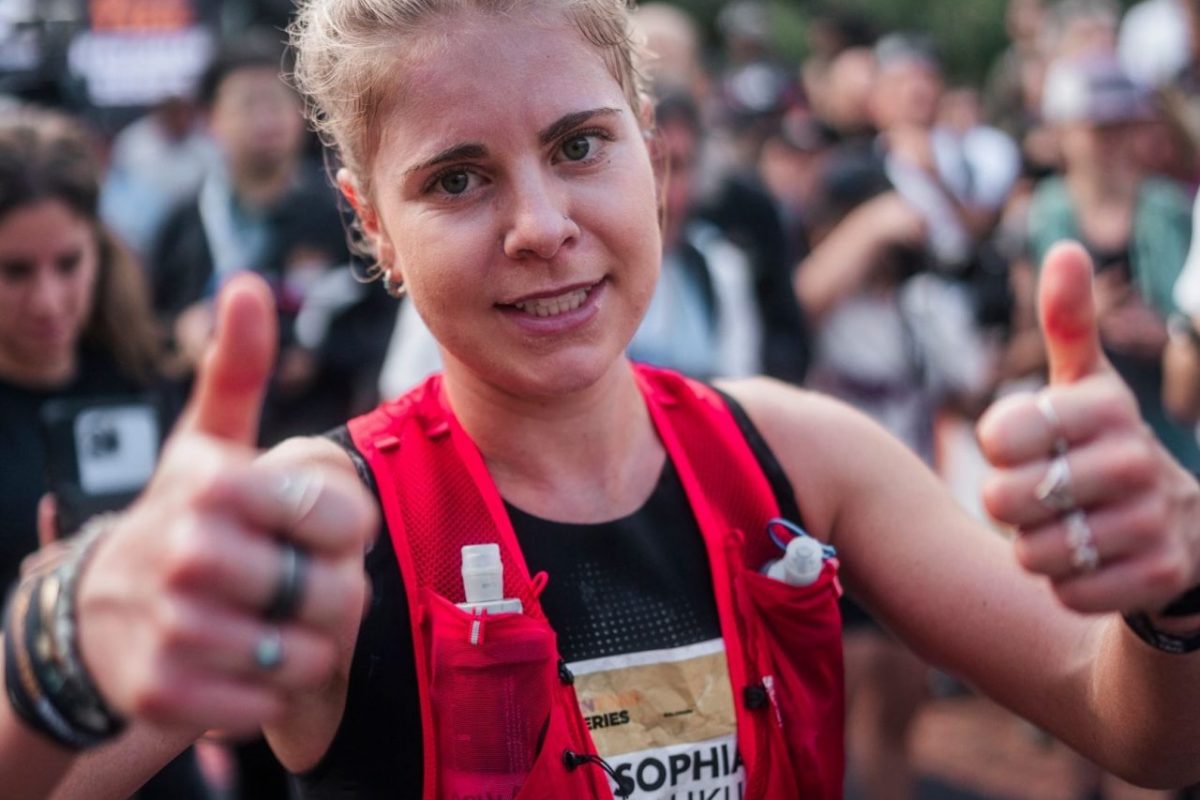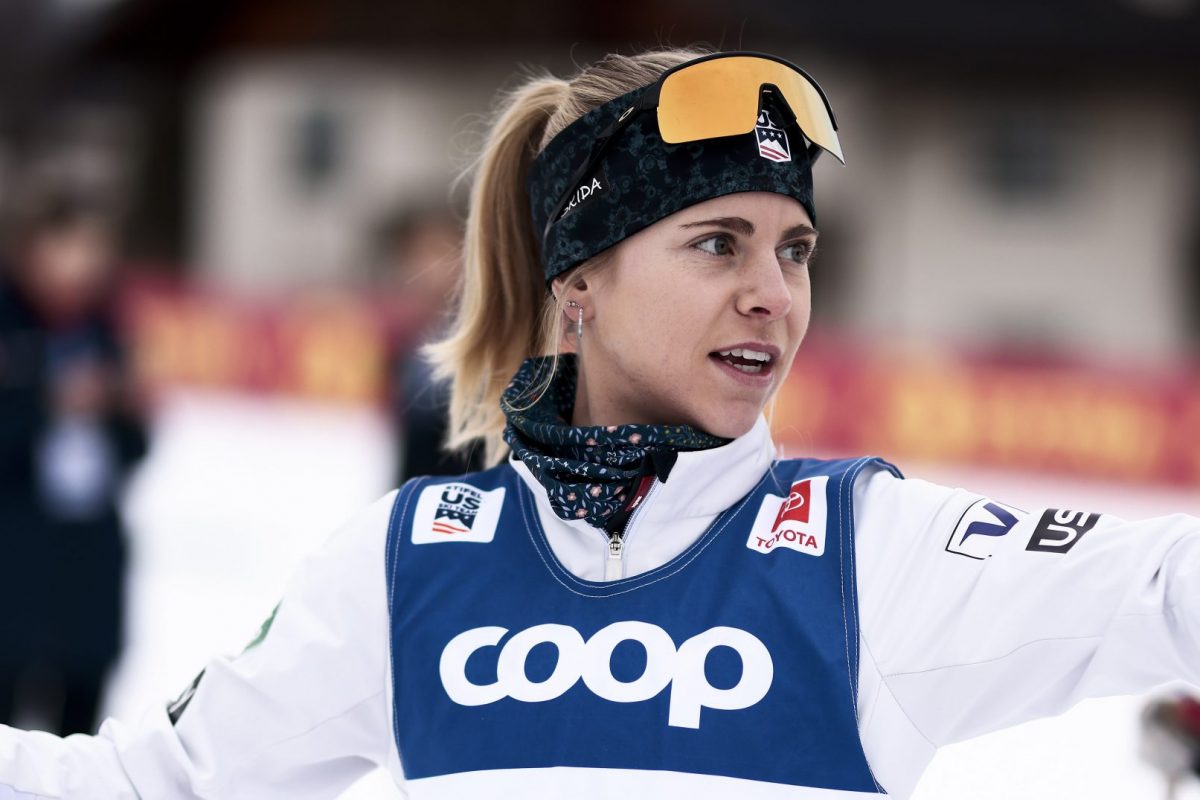
Bryan Fletcher (USA) saved his best for last, winning the final Nordic Combined World Cup of the season in Oslo, Norway on Saturday.
The win marked Fletcher’s first appearance on the World Cup podium, and closed out a successful season in which he went from an up-and-comer to one of the mainstays on a strong US team.
The win, while a breakthrough, was hardly a surprise. Fletcher had already cracked the top-10 four times heading into the last weekend at the Holmenkollen Ski Stadium, including a then career-best fourth in Liberec two weeks earlier.
The day did not play out as planned for all the skiers, however, with a change in the competition format due to, of all things, good weather.
The event was scheduled as a traditional two jump with 15k cross-country, but with temperatures rising into 50’s, the jumping became too dangerous.
Fletcher explained that the slow in-run on the jump was the cause for concern. Skiers would decelerate through the curve in the jump leaving them on their toes, which coupled with a headwind created “bad potential for crashes.”
The second jump was canceled, and the cross-country shortened to 10k—a combination that has become standard on the circuit.
The originally planned race is rarely held now, and only allows for 30 starters.
“This would just be a historic throwback thing,” Fletcher told FasterSkier. “Obviously Holmenkollen is such an old event.”
It was not to be however, and Fletcher headed out on the 10k course in third after a strong jump, 39 seconds down on leader Taihei Kato (JPN).
Two other skiers started at the same time as the American, German Tino Edelmann and Gudmund Storlien, with a large pack another 20 seconds back.
As the first of four 2.5k laps was winding down, Fletcher realized the pace was too slow.
“Our group wasn’t going fast enough. There was a huge risk of getting caught,” he explained. “So I took the lead of our group and kind of upped the tempo and just buried myself for the next three laps.”
Edelmann dropped off first, and eventually Storlien as well. By the third lap, Flethcer had caught Taihei and was in position for his first podium.
Dropping Edelmann early gave Fletcher confidence that he was skiing well.
“When you’re leading and people are falling off of you, and you’re still feeling okay, it just makes it that much easier,” he explained.

But despite maintaining close to a 20 second lead on the main chase pack, and despite the fact that Fletcher feels that he is “definitely skiing faster than I’ve ever skied before,” he couldn’t relax at the front.
Large packs can make up ground quickly, and the chasers were led by Mikko Kokslien (NOR), who is routinely the fastest skier on the circuit.
Recognizing this, Fletcher did not back off after catching Taihei, and “kept the hammer down.”
He said he was suffering on the final lap, but also knew he needed to be in position for the final sprint.
“I knew coming into the finish I needed to be in front of him going into the last corner—traditionally everyone that’s won here has been first on that roller,” Fletcher said.
He matched one last attack by Taihei and countered with one of his own up the final hill to the flat above the biathlon range, gaining the position he desired.
“Once I made it there I just kind of fell over and rested for one second, then just lifted up and sprinted as hard as I could into the finish,” Fletcher said.
By this point, he wasn’t just racing Taihei, however. Led by Kokslien, the chase group made up 16 seconds over the final 500 meters.
Fletcher held on for the win, but just barely. Kokslien caught Taihei and crossed the line just 2.4 seconds behind the American.
Fletcher has been gunning for the podium all season, and has been close on several occasions. After dropping Gudmund he knew the question was whether he would have enough gas for the final lap.
“I’ve had a couple experiences this winter with being close to the podium and wasn’t able to hang onto my pace on the last lap,” Fletcher said. “The question became, could I hold that tempo for one more lap?”
The answer in hindsight is obviously ‘yes,’ marking a breakthrough for the US Team.
For years now, Billy Demong, Johnny Spillane, and Todd Lodwick have led the way with top results—Olympic and World Championship medals, World Cup wins, and top overall rankings.
Fletcher is the first of the next generation to break through, and signals a bright future for the program.
“Having Billy and Johnny who have won so many great races, that’s a really huge asset to have on my side,” he said. “I’ve learned from them, and hopefully will continue to learn from them.”
Fletcher ended the season ranked 17th in the world, leading the team.
Winning brought an expected related reaction from Fletcher who said he was “at a loss for words” to describe the day. And winning at the historic Holmenkollen venue just added to the thrill.
“I’m completely beside myself and humbled at the same time,” Fletcher said.
The King of Norway traditionally attends the cross-country and Nordic combined World Cup competitions at Holmenkollen, and Saturday was no different.
Fletcher and overall World Cup winner Jason Lamy Chapuis (FRA) were escorted to the royal box and chatted with the King for five minutes or so, discussing the beautiful weather, summer training in Norway, and the Americans’ Tour de France camp.
“I was fully expecting it to be very formal ‘shake your hand and walk by’,” Fletcher said. “But it was totally a relaxed experience…he was just a warm inviting guy and the conversation just came naturally after a couple seconds.”
The plan had been for the team to pack up and catch a ferry back to central Europe, but the decision was made to postpone “and just enjoy the moment.”
Somewhat overshadowed by Fletcher’s win was an excellent race by Demong, who ended up 4th, just .6 seconds behind Taihei.
The veteran posted the fourth fastest ski time on the day after jumping 12th.
Kokslien’s time on the track was an impressive 20 seconds faster than the next closest man.
With the World Cup over, Demong headed to Switzerland to race the Engadin Ski Marathon, and Fletcher will join the jumping team in Planica, Slovenia for a ski flying competition next weekend.
“I’m hoping to just go and have fun,” Fletcher said.
He will compete as the fourth man in the team competition and is excited to take advantage of the unique opportunity.
“You only can jump ski flying hills when there’s a competition,” he explained, noting that he had never experienced such a large hill.
“There’s definitely some nervous feelings—it’s a good thing,” Fletcher said. “With a jump that big you have to be aggressive and you have to want to go for it. The nervous energy helps keep you on your toes, keep you in the right spot.”
He shouldn’t have a problem if he brings the same intensity he did on Saturday, where he channeled his past close calls, and “took all the motivation from all the other races and just put my head down and went.”
Nat Herz contributed reporting.
Topher Sabot
Topher Sabot is the editor of FasterSkier.




One comment
David McCahill
March 13, 2012 at 6:16 am
Great writeup, and congrats on a phenomenal season Bryan. Let ‘er buck in Planica… it’s about time for a combiner to put one down over 240!